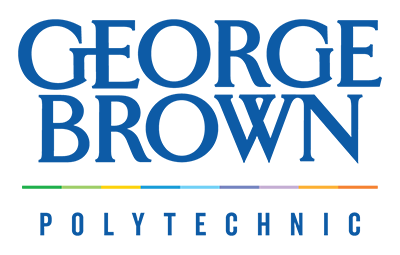What Can You Do to Increase Your Odds of Success?
Did you know that typically only about 40% of students actually complete their college certificate or degree, (after a period of 6 years)?[1] That’s a stat that most schools aren’t too comfortable talking about but the reality is that getting through a postsecondary program is really a tough challenge. And I’ll add that distance education, self-paced learning programs, like ours, are typically even lower. The purpose of this post is to help students understand why this is the case and to give you some insight and some tools to help you get into the 40% that graduate successfully.

So Why do Some People Fail to Complete their Postsecondary Programs?
Generally, everyone starts a higher ed program with greats hopes and enthusiasm, great expectations of performing well and certainty that they will finish what they have started. So, given that great start, what is it that causes so many people to fail. Generally speaking, there are four main reasons;
1) Inadequate Academic Prep
Most programs are pretty careful about checking out your credentials before you are accepted into a program, unless, of course, it’s an open enrolment program. (More about that later.) But the reality is that just because you passed that high school math or physics course does not mean you can handle what’s to come. And of course, there is a lot of variability across previous credentials, leading to really mixed bag of student preparedness.
2) Structural Barriers
Working your way through a four-year degree, for example, is complicated and requires a sustained attention to deadlines and details, especially when things get tough. The systems that students face, i.e., getting registered for courses, rules for course loads, how to address a failed course, financial aid, applications to graduate, etc., on a good day go smoothly but on a bad day can be a bureaucratic labyrinth that’s sole purpose seems to be to get in your way. These structural barriers can seriously frustrate a student if they’re not of brave heart, iron will, and have good communication skills.
3) Financial Constraints
The cost of higher ed is a big challenge for most students. It is generally expensive to begin with, then as a new college student add living away from home, and on your own, for the first time and that can be a recipe for disaster. Similarly, if you are an adult with family responsibilities, going back to school for upgrading or additional training, the challenges of a tough economy, COVID-19, and a rapidly rising cost of living can easily derail you before you complete your program.
4) Lack of Personal Motivation
Personal motivation is a key to being successful at anything worthwhile in life but it is particularly important in a student’s career at college. The biggest challenge to personal motivation lies in the fact that there is often very little immediate gratification for the effort you must put into things to be successful. You must stay motivated for the long haul.

What Can You Do to Increase Your Odds of Success?
Each and every student is different in how they approach their academic career. And you all have various strengths and weaknesses that will help you or hurt you as you undertake and navigate the complex, long term process of completing a higher ed program. Knowing yourself is key as you plan your approach to your life as a student. Here are 10 things to help you improve your likelihood of success.
- Spend time to carefully research your various program options, before you leap into a commitment. Speak seriously with advisors, and talk to other students. Do the research to make sure your choice is really right for you.
- Make sure that you do meet the academic requirements for the program, especially with math and science related topics. If you don’t, take the appropriate remedial courses in advance to make sure you are up to speed.
- Be really clear at the outset of your studies why you are doing this, understand your personal motivations and connect your impending coursework to your life and your personal goals. Alignment of these things will remove friction from your path forward.
- Once you start, make a clear plan, set a path, set your goals, set a schedule, as much as possible, in advance. This approach will simplify your process and help you make better decisions along the way.
- Embrace all the support systems you have available to you. Use advising support, tutorial support, financial support, peer support, and family support to help keep you on track
- To be successful you must really personally show up. Stay committed, stay organized, take notes, practice, and study hard.
- Create an optimized personal study space, a place you can go and escape the other pressure and issues in your life and be your best student possible.
- Spend some time to figure out your optimal learning style and adapt your studies to it. If you can learn more about how and when you are most productive, you will get better results.
- Keep focused on staying motivated - understand how your studies will facilitate your career and benefit others in your life. Keep your income goals squarely in sight, connecting coursework to your life and goals to stay motivated to persist in your academic trajectory. You need to clearly see the destination that career and earnings from your education will provide. Stay positive. You need to believe that you can succeed and need to perceive an important reason to engage in the needed study behavior, particularly if you have previously struggled in an academic setting. These “positive expectancies” are critical to your long-term success as a student.
- If you do feel your energy and motivation slipping, nip it in the bud by conducting a personal intervention with yourself to put yourself back on track. Review the reasons why you decided to pursue your program in the first place, and all of the positive outcomes that its successful completion will bring. This action can help you renew your personal commitment and build momentum towards your program’s completion.
- Share your goals and progress with accountability partners, including other students, friends, teachers or family to help keep yourself on track.
- And finally, remember to celebrate your success as you go, reward yourself, and recognize yourself for all the hard work and the great results you are seeing along the way.
Remember, You’re Not Alone
Completing a higher ed program isn’t easy or everyone would do it. It is a serious challenge that requires a thoughtful, sustained, enthusiastic and focused effort. The key is to engage all the human and systemic resources you can find to help you, to motivate yourself, to support you and to celebrate your successes. Remember, you are not alone. Your academic advisors, instructors, tutors, employers, and family are all pulling for you. So, set your sights high, dig in and get it done.
Below is a list of resources to help you while working on your online program:
References
1. Bailey, Martha J., and Susan M. Dynarski. “Inequality in Postsecondary Education” in Whither opportunity?: Rising inequality, schools, and children’s life edited by Greg Duncan and Richard Murnane, 117-131. New York: Russell Sage Foundation, 2011.
